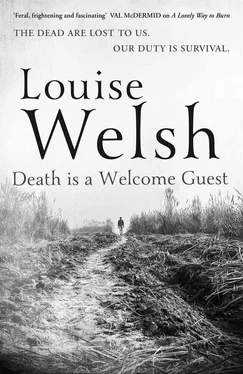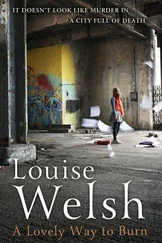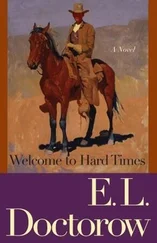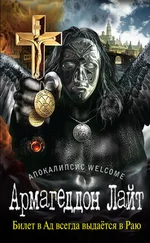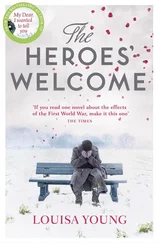Magnus had half expected the question. He said, ‘I tried to save a woman from being attacked. It got messy and the police picked me up. It was just after the sweats took hold. Special measures were in place and I got thrown in Pentonville without a trial.’
‘Quite a string of bad luck. Some might say an unbelievable string of bad luck.’ Malachy tossed Magnus a set of keys. ‘I heard you were headed north.’ He nodded to the row of motorbikes standing outside the house. ‘These are for the Honda on the left. I imagine you want to hit the road as soon as possible.’
‘Are you telling me to leave?’
‘I’m telling you to be careful. You don’t want to end up in the same situation as your friend.’
Magnus said, ‘He’s not my friend.’
‘So why are you defending him?’
‘I don’t know.’ Magnus watched the swifts’ quick climbs, their sharp turns and swoops. No matter how many there were, cutting through the air, they never collided. ‘A friend of mine once wrote me a letter. It said, Life isn’t worth living once you realise the world is hollow . Maybe I’m scared of finding out what he meant.’
The Honda took the country roads’ winds and bends with ease. Magnus had left Tanqueray House with just the clothes he was wearing and the rush of air felt cool and reckless against his bare arms and head. He remembered what Raisha had told Belle about homes with children being easy to spot and tried to imagine the kind of house that would contain what he was in search of. It would be an old countryman’s cottage, he decided, somewhere neatly painted with a kitchen garden out back and a variety of prize roses out front. He had noticed a likely house, not far from the cemetery, on the way back from burying Jacob. An elaborate model of a sailing ship in full rig sat in its front window. It was the kind of object Magnus had coveted as a boy and he had been tempted to break in and steal it for auld lang syne. The ship had suggested more than his island childhood: it spoke of masculinity, order and patience.
He smashed the kitchen window with a washing pole. A smell of rot and decay reached down into Magnus’s throat before he was fully inside and he crouched on the draining board gagging. He was tempted to retreat, but time was against him. Magnus grabbed a dishtowel decorated with a map of the Norfolk Broads and tied it around his face.
The householder sat slumped in the sitting room, his head an explosion. He had used a rifle to do the job and the recoil of the blast had sent the gun to the ground. Magnus kept his eyes from the corpse and tried to shut out the buzz of flies. He reached for the rifle, lips clamped tight, skin crawling in response to the thought that the man might stretch out and touch him, though the man had been dead for weeks. Magnus lifted the gun gingerly, checked the chamber and put on the safety catch. It was fine for killing vermin, frightening bank tellers or shooting your brains out, but it was nothing special.
The gun cabinet was in a room the man had probably called his study. He had been a law-abiding sportsman to the end and had locked the cabinet before he shot himself. Magnus guessed the keys were still in the man’s pocket, but there was no way he could bring himself to touch the corpse and so he forced the doors open with the aid of the sitting-room poker. The contents were disappointing, a pair of rifles as unremarkable and short range as the first. Magnus zipped both of them into their cases and scooped up a box of bullets. He left the model sailboat in its place on the windowsill. It was spattered with blood, like a vessel that had sailed into gory waters.
The village felt strange. There were no abandoned cars skewed across the roads or smashed shop windows as there had been in London. The streets were litter-free, the cottage doors neatly closed. It was as if the residents had all gone off on an annual spree and might return at any time. Magnus wished he had never seen a zombie movie. It was too easy to imagine half-decayed villagers stumbling towards him. He muttered, ‘Get a bloody grip,’ and pushed the Honda down to the green. It was deserted, except for a pair of horses who lifted their heads and looked at him. One of the beasts lowered its head and resumed grazing but the other, a handsome chestnut with a white star on its forehead, walked slowly over to Magnus and nuzzled him. He knew the horse was in search of a treat, an apple or perhaps a Polo mint, but the clean animal scent of it came from his childhood and tears sprang to Magnus’s eyes. He stroked the horse’s long nose and pressed his brow against its neck.
‘I’ve got nothing for you, boy,’ he whispered into its mane. ‘Nothing for you.’
The horse gave him a last friendly nudge and walked back to join its companion, as if it had understood Magnus’s words.
Paul had reached the green before him and some of Malachy’s posters were taped to lampposts. Magnus ripped them down and tore them into confetti. The sun was high in the sky, the execution less than twenty-four hours away. He scanned the houses that edged the green. There was something about them that added to his usual stock of unease. He stared closer, noticing their gardens’ trimmed hedges, clipped lawns and tidy beds. Horses did not leave neat edges, nor were they known for discriminating between weeds and flowers.
‘Are you one of the judges?’
The voice gave him a jolt. It was high and bad-tempered and belonged to a tall woman in a straw hat and gardening smock. The smock was printed with improbable flowers: blue orchids, neon ferns and purple daisies. Magnus wondered that he had not spotted her before.
‘I might be. What would I be judging?’
‘England in Bloom.’ The woman was standing behind a hedge. She had a pair of secateurs in her hand and looked as if she were tempted to use them on him. ‘I’m the only one of the committee available, but I’m happy to show you round, though I must say you’re rather late. I’m afraid some of the gardens are past their best.’
Magnus said, ‘It’s been a difficult year.’
There was a flicker of something behind the woman’s eyes, but she tucked the secateurs into the front pocket of her smock and pushed open the gate. ‘Perhaps we should start with Mrs Norris’s garden.’
He needed to get away from the woman and her madness, but Magnus could still feel the kind touch of the horse’s face against his. He said, ‘I’ve already done my inspection and I am delighted to announce that Tanqueray Village has won England in Bloom.’
The woman kept her hand on the gate and gave him a suspicious look. ‘When did you do your inspection? I’m always here. I would have seen you.’
‘A few days ago.’ Magnus took a step backward. He had propped the motorbike opposite her cottage, on the edge of the green. ‘Tanqueray won hands down. We’ll be sending a photographer to record it for the local paper.’
‘Now I know you’re lying.’ The woman’s voice was more menacing for being soft. ‘Everyone at the Gazette is dead. Jeremy who always takes the photographs is dead. They are all dead. Robin my husband is dead, our son, our daughter-in-law and our little grandson are dead. Mrs Norris is dead and so is everyone else who lived on the green. You have the damn cheek to make excuses about a difficult year. I have had a bloody dreadful one, but I have continued to work my fingers to the bone keeping these gardens in bloom. I demand that you do your job and inspect them properly.’
If it were not for Jeb he would have walked the boundary of the green with the woman, exclaiming at the gardens, but time was running out.
‘I’m sorry. I can’t.’ Magnus’s hand was on the saddle of his bike.
Читать дальше
